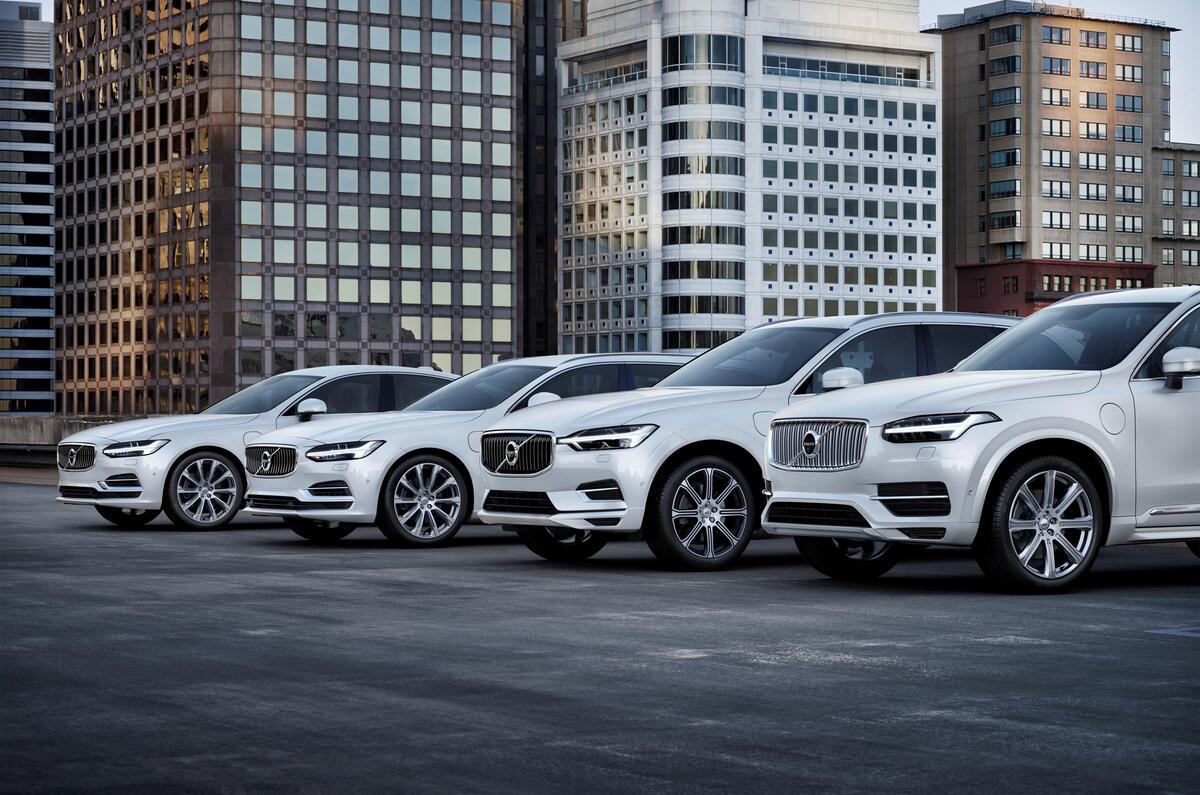Every Volvo car launched from 2019 will have an electric motor, the company has announced, describing the move as “placing electrification at the core of its future business”.
The bold move – the first of its kind in the automotive industry – will mark the end of cars that only have an internal combustion engine.
Volvo’s range of electrified cars will include all-electric, plug-in hybrid and 48-volt mild hybrid models.
While Volvo has pipped its rivals to the post with this announcement, it's expected that all new, large vehicles with internal combustion engines will need electrical assistance - most likely in the form of a 48-volt mild hybrid - to pass future emissions legislation after 2019, meaning that other car makers will need to quickly follow suit.
An industry insider commented: "Brands that only have large vehicles in their portfolio will have no choice but to standardise [48-volt] - but we should be in no doubt that the vast majority of their sales will continue to be of vehicles with internal combustion engines somewhere under the bonnet for the foreseeable future."
Opinion: is it too soon to make every car electrified?
Opinion: why Volvo isn't sounding the death knell for petrol
Volvo also confirmed it will launch five fully electric cars between 2019 and 2021, three of which will be Volvo models and two of which will be high performance electrified cars from Polestar, Volvo Cars’ performance car arm.
Volvo boss Håkan Samuelsson said the three Volvo electric models would be all-new, rather than derived from existing models. R&D chief Henrik Green also confirm the pure electric models would be offered with two battery choices, one for medium power and range and one for high performance power and with a range of up to 310 miles.
These five cars will be supplemented by a range of petrol and diesel plug-in hybrid and mild hybrid 48-volt options on all models.
The car maker said pure ICE cars will gradually be phased out and replaced by ICE cars with electrified options. Samuelsson declined to confirm when all of the range will become electrified, but pointed to the brand's five-year product lifecycle, which would suggest all cars would be electrified by 2023.
Both of the brand's platforms, Compact Modular Architecture and Scalable Product Architecture, are currently being prepared so that both are adaptable for electrification, confirmed Green.
In response to a question posed to Samuelsson in which it was asked why he'd changed his mind on all-electric vehicles - which two years ago he denounced, he said: "We were sceptical about the cost of the battery and the lack of infrastructure. We still believe hybrids are the way in but things have moved fast [with all-electric]. Battery cost has come down and there is movement with infrastructure."






Join the debate
Add your comment
Volvo's smoke and mirrors
In the meantime, they are making a big splash of dipping a toe in the water: their announcement is purely aimed at garnering as much data as possible on public reaction: every word has been carefully chosen to that aim.
In practice, ALL models LAUNCHED after 2019 represent a minute fraction of car sales in Europe, let alone world-wide (including California where Volvo once held a prestigious image). The introduction of a 48v system for their cars is merely following where others (Audi) have led: it simplifies many demands made systems by so many add-ons like sophisticated A/C for instance.
Smoke and mirrors!
Not Quite a full commitment
https://uploads.disquscdn.com/images/6e8f52a4e3d573944690236b0fe76c354406a057ceb9d8f31fc0cfa57e5f3466.png
Not Quite a full commitment
https://uploads.disquscdn.com/images/6e8f52a4e3d573944690236b0fe76c354406a057ceb9d8f31fc0cfa57e5f3466.png